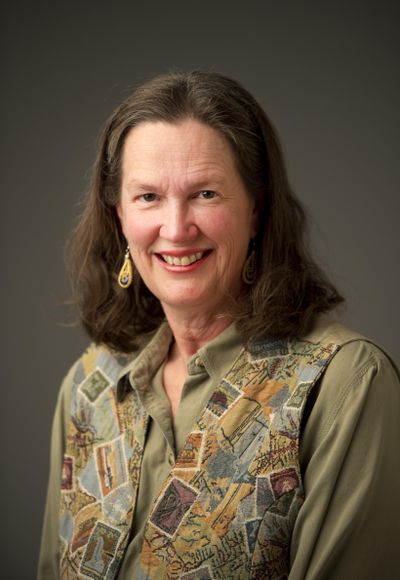Sue Lani Madsen: Unions vs. Lincoln County – who’s afraid of open meetings?

I wondered if the public they are really afraid of is their own members.
The commissioners passed a resolution Sept. 6 to allow anyone to sit at the back of the room and listen. Not comment, not participate, just listen.
Attendance at public meetings is sparse. Lincoln County has a population of 10,321 spread across an area nearly twice the size of Rhode Island. The largest portion of the county budget goes to public safety.
Teamsters recently replaced the Lincoln County Deputies Guild to represent both commissioned and noncommissioned officers in the Sheriff’s Department, and 2016 will be their first contract negotiation with the county. The other two bargaining units are longtime American Federation of State, County and Municipal Employee affiliates representing employees in administration and public works. The AFSCME contracts are only subject to health care updates this year.
Lily Wilson-Codega, political action director of the three-state Teamsters Joint Council 28, opened with an offer to solve the county’s budget problems. Wilson-Codega suggested the Teamsters were considering lobbying in partnership with local government to remove the 1 percent cap on property taxes, and “things like this (open negotiations) take away from that priority.”
Higher property taxes aren’t a priority in Eastern Washington, even though the 1 percent limit passed by initiative in 2001 has hit small rural counties hard. They lack both a retail base and the new construction that drives state sales tax revenue. It’s not a problem for most of the state, and it’s unlikely to change.
Wilson-Codega also referred several times to “that group” seeking to attack unions. That group, which must not be named, is the Freedom Foundation, active in pushing for public-sector union transparency.
Joe Kuhn, business agent for Teamsters Local No. 690, asked where the idea for open negotiations originated.
The answer: “Lincoln County is facing difficult financial times, and in November we’ll have a proposal on the ballot to increase sales tax 3/10 of 1 percent for public safety,” said Commissioner Rob Coffman. “We need to be as transparent as possible.”
Unlike many larger counties, the commissioners do their own bargaining.
Dean Vercruysse, local representative for AFSCME, complimented the commissioners on their integrity.
“I know your hearts, you are the model for what elected officials should be,” Vercruysse said. “You three have balanced the needs (of employees and citizens) really well.”
But he repeated the union talking point, asking for the resolution to be rescinded.
Commissioners Scott Hutsell and Mark Stedman emphasized the philosophical importance of openness when elected public servants negotiate with hired public servants. “What do we have to hide from our citizens?” Stedman asked.
The commissioners are asking one of the most conservative counties in the state to vote to raise taxes, and they want to make it clear there’s nothing to hide. So what do unions have to hide?
Kuhn was concerned about the precedent and said there has been a ton of awareness raised on this issue among their partner organizations. “It’s very, very foreign,” said Kuhn. Teamsters would prefer not to battle legally, but “we’ll have to take this on.”
It’s not that foreign. Oregon has limited public participation similarly to the Lincoln County resolution. Unions have not been destroyed, and collective bargaining continues. But the legal threat is real.
Lincoln County is in no position to take on an expensive legal battle. The commissioners will be looking for partners who want to stand for principle.
“The state’s leading experts regarding public employee unions’ impact on the public interest are at the Freedom Foundation, so I can understand their interest in our help,” said Jami Lund, senior policy analyst for the organization.
But in the end, the decision will be pragmatic.
“The feedback from county residents has been positive, and my principle isn’t going to change, but if it comes down to we don’t have the money to fight it, that will be it,” Coffman said.
Columnist Sue Lani Madsen can be reached at rulingpen@gmail.com.